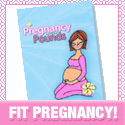During your pregnancy it’s important to eat properly to help your baby grow while still trying to satisfy all the food cravings you may experience. However, you’ll want to keep in mind that just because you’re craving it, doesn’t mean you should indulge yourself as it could be unhealthy for your developing baby.
Your main concern regarding foods to avoid should be bacteria. It’s always a good idea for anyone to avoid bacteria contaminated foods, but pregnant women could suffer much more serious effects from food poisoning or bacteria ingestion that the average person would recover from in a day or two.
Raw Meats and Uncooked Eggs
Some people enjoy a rare steak or may use dressings that are made with raw egg. If you already love these foods or develop a strong craving for them while pregnant, you should try to avoid them as you could be exposing yourself to salmonella or E. coli.
Safely cooking your meats, chicken, and eggs will kill any harmful bacteria and will allow you to still enjoy the foods you love. Be sure to check the labels of any sauces or dressing that could potentially contain raw eggs and choose a brand that uses alternative ingredients. It’s also a good idea to toss out any cracked eggs as bacteria from the shell could have migrated inside.
Deli meats, smoked seafood, and jerky could contain harmful bacteria so avoid these foods if possible or re-heat to kill any possible germs or parasites. Deli meats and hot dogs also contain nitrates so cutting them out of your diet altogether may be your best option.
Unpasteurized Dairy
Soft, unpasteurized chesses can be a passion for some people but pregnant women should stay away from these foods as they may contain listeria and can cause food-borne illness. Low-fat dairy is a better option, and checking the labels of your favourite cheeses will let you know if it’s unpasteurized or not.
Fish and Seafood
Fish is an excellent source of protein and contains the omega-3 fatty acids that will help your baby’s development, but you should still be careful with the types of fish you choose as some may not be as good for you as others. If you want to avoid fish altogether but still get the nutritional benefits it provides you can always supplement your diet with natural fish oils.
Raw fish, just like raw meat or eggs, could contain bacteria or parasites. Ingesting a tapeworm could result in much needed nutrients being leached away from you and your baby. If you have a love for sushi and sashimi, it may be a good idea to temporarily find an alternative to raw fish.
Some types of fish are higher in mercury such as shark, tuna, sword fish, and marlin. Eating them in moderation is fine when you aren’t pregnant, however it would be best to avoid them altogether when you’re feeding a growing fetus as mercury could affect its developing nervous system. Sticking to salmon, shrimp, cod, and pollock would be your best bet.
Meat, dairy, fish, and eggs are always an excellent source of protein, vitamins, and nutrients. You can get a lot of iron from these foods, which is essential for a pregnant woman, but proper cooking and preparation techniques should be followed. It’s still possible to get everything your body needs from these foods while keeping you and your baby safe and healthy.




